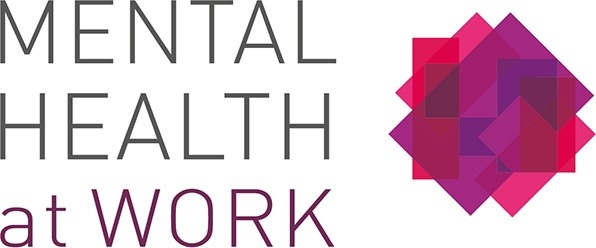The workplace has significantly changed in the last couple of years and in many cases the pace of change is increasing as workplaces grapple with responding to the aftermath of Covid-19, with the move towards hybrid working, plus political and economic challenges. Combined, this has the potential to put additional stressors on employees and undermine mental health. The guidelines issued last year by WHO around workplace mental health are intended to support organisations to make evidence based decisons around how to respond to, protect and support employee mental health and is built from a global evidence base.
Within this report the recommendations for managers were identified as having the strongest evidence base and can be summarised as:
- Train line managers to improve knowledge, attitudes and behaviours
- Build this into a comprehensive programme, including refresher training
- Engage senior leaders to support the cultural change
Why invest in workplace training ?
The cost of mental health to the workplace continues to grow, estimated by Deloitte to be £56bn in 2022, an increase of 25% over 2020, driven by sickness absence, presenteeism, which is 4-4.5 x the cost of sickness and most significantly an increase in staff turnover due to mental health issues. It is a cost that most workplaces cannot ignore.
Wellbeing provision has boomed to become a billion-dollar industry, from wearable technology and chatbots to broadscale train the trainer programmes and facilitated workshops, yet there is no regulation around the quality or a consistent evidence base that enables an organisation to choose the right route for impact within their workplace. The guidelines produced by WHO are intended to improve this and support decisions around policy, planning and delivery.
Amid current challenges, it may seem tempting to reduce the focus and potentially budget allocated to mental health, but as the WHO point out, this mindset can have unintended consequences that impact business performance. The burden of workplace pressure often falls onto managers and whilst many are well equipped to execute strategic plans and directional changes, managing mental health alongside this is often viewed with a degree of trepidation around what to do, how to do it and when.
“Safe, healthy and inclusive workplaces not only enhance mental and physical health but likely also reduce absenteeism, improve work performance and productivity, boost staff morale and motivation, and minimize conflict between colleagues. When people have good mental health, they are better able to cope with the stresses of life, realize their own abilities, learn and work well and contribute actively to their communities. And when people have good working conditions, their mental health is protected.” WHO Guidelines on Mental Health at Work, 2022
WHO ‘Strongly Recommends’ Manager Training in mental health
The role of a manager or supervisor is critical if an organisation is to achieve a psychologically safe, and inclusive workplace where conversations about mental health are natural and open. Managers are in a pivotal position to notice changes early, begin an open conversation and ensure that individuals are signposted to the relevant support both within and external to an organisation and consider reasonable adjustments. WHO highlight the evidence around the importance of training managers to support workplace mental health and the conclusion made that this is a Strong Recommendation with a moderate certainty of evidence, the only one within this report to achieve this grading of importance.
WHO position this training as a requirement to improve managers’ knowledge, attitudes and behaviours for mental health and to their workers likelihood to seek help when needed. Well-constructed and delivered training also lifts the burden from a manager’s shoulders, identifying clear boundaries and confirming that their role is not to diagnose, advise or fix.
Finding the right manager training programme
Whilst we don’t yet have an accreditation system for providers for workplace mental health training, WHO suggests that organisations should consider the quality and effectiveness of any provision; this can be established through case studies, referrals and testimonials and looking at the outcomes that you would expect from the programme and then setting up a system to monitor this, which might be through employee surveys, focus groups or metrics collected for example as part of a sickness and absence process. A readily available metric for example is the percentage of employees accessing the EAP and if this increases it suggest that confidence in the system is increasing and employees are seeking support early, increasing the opportunity for preventative steps.
For ongoing impact, look for a provider that can create an ongoing programme, evolving to meet the growing needs of the mental health agenda. Further research is needed into the ideal frequency, however given the growing considerations that most workplaces are facing, equipping managers around specialist areas including return to work after absence, wellness action plans, trauma and resilience could be beneficial. This can help managers gain the confidence needed to ensure that mental health becomes part of their role, rather than another task or training.
Embedding change and broadening a programme – what can help…. and what doesn’t.
The role of senior leaders is critical in this process, providing the encouragement for managers to both attend and apply the training and support the cultural change which embeds behaviour.
Training for employees in mental health literacy and awareness, whilst seen as useful, was not found to drive change across an organisation in isolation This is disappointing news for organisations that invest only in one off webinars. WHO rate this as a conditional recommendation with a very low certainty of evidence. Whilst it does have benefits in increasing an individual’s knowledge and supports the removal of stigma, it has no impact on individuals seeking support and therefore will not form a substantive preventative action for the workplace.
Training for managers is an investment, in time and if you choose to use an expert provider within this field, which WHO recommends, it will have a cost. It can be tempting, particularly in more challenging economic times to begin with activities that give greater reach at a lower cost per head such as mindfulness or yoga, however again WHO is clear that there is a low certainty of evidence that this has an impact. It might make a good headline within employee communications, but it will not drive performance, productivity or reduce absenteeism.
What are the next steps ?
WHO highlights that many organisations will need to hire external experts to ensure competence in delivery of any training programme. Mental Health at Work have been supporting organisations across all industries since 2016 to build their global capability around the workplace mental health agenda.
Our programmes are customised to each client, taking into account existing activity, culture and required outcomes. Our MHaW Manage® programme, introducing knowledge and skills to manage mental health within a role as a leader, manager or supervisor, has been part of our offer since we launched and was our most popular workshop in 2022. We deliver in small, facilitated sessions over a day, either face to face or virtual and we know this drives behavioural change which makes a difference.
If you would like to know more about how we can help build a customised programme for your organisation, support your strategy implementation through coaching or review your mental health plan as part of a consultancy project, visit us at www.mentalhealthatwork.com or contact us here.

